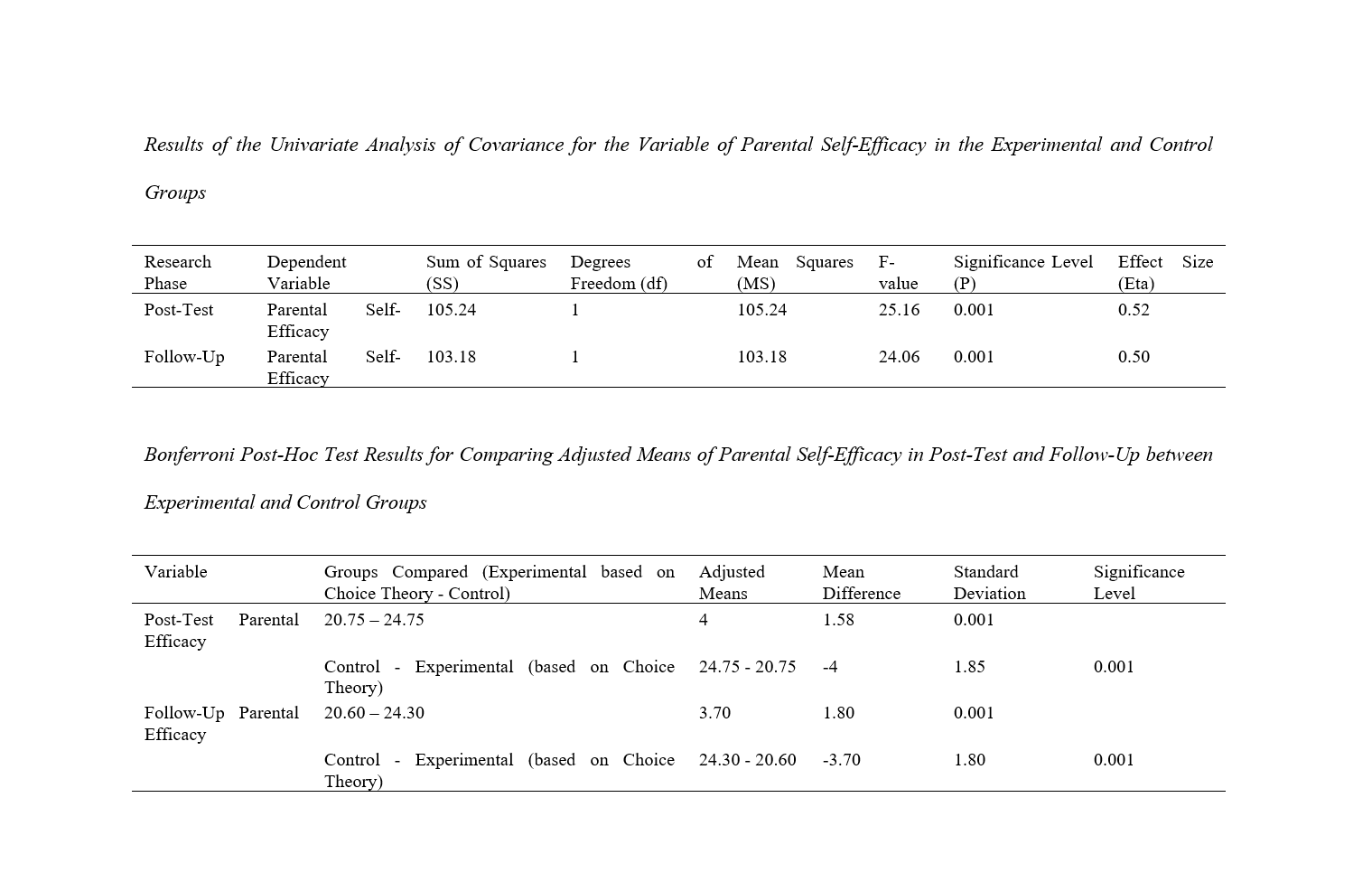The Effectiveness of Metacognitive Therapy on Dysfunctionalities in Women with Premenstrual Dysphoric Disorder
Keywords:
Metacognitive Therapy, Dysfunctions, Premenstrual Dysphoric Disorder, WomenAbstract
Objective: The aim of this study was to evaluate the effectiveness of metacognitive therapy on dysfunctions in women suffering from premenstrual dysphoric disorder.
Method: This quasi-experimental research used a pre-test, post-test, and follow-up design with a control group. The population consisted of female dentistry students at the Islamic Azad University diagnosed with premenstrual dysphoric disorder in 2022. A sample of 30 women was selected through convenience sampling. The experimental group received metacognitive training over 12 sessions lasting 60 minutes each week, while the control group was placed on a waiting list. Data were collected using the Weisman and Beck Dysfunctional Attitude Scale (1987) and analyzed using repeated measures ANOVA through SPSS software.
Findings: Results indicated that metacognitive therapy was effective in reducing dysfunctions. The eta-squared statistic also suggested that approximately 24.3% of the reduction in dysfunctions was attributable to the effectiveness of metacognitive therapy.
Conclusions: Metacognitive therapy can be deemed effective in treating dysfunctions in women with premenstrual dysphoric disorder and can be used to alleviate psychological problems in these patients.
Downloads

Downloads
Additional Files
Published
Issue
Section
License

This work is licensed under a Creative Commons Attribution-NonCommercial 4.0 International License.





















